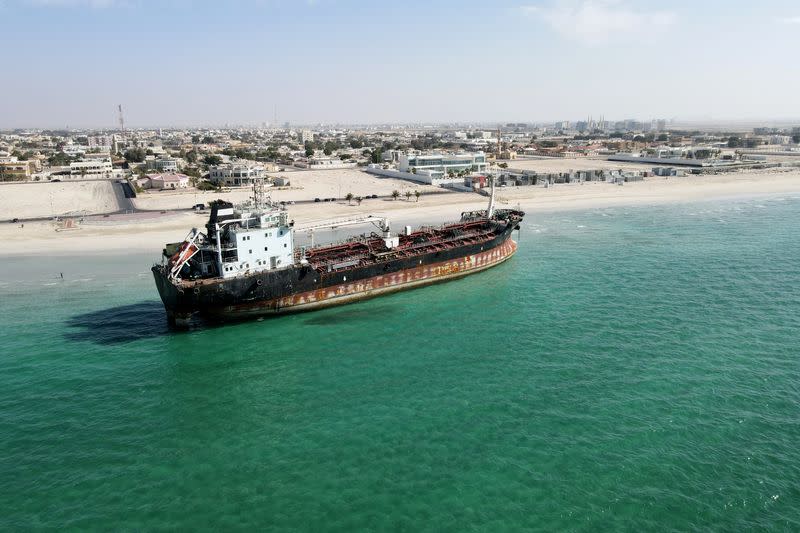DUBAI (Reuters) – Nearly four years on its odyssey at sea, the crew of five oil tanker MT Iba is tantalizingly close to shore, but still unable to set foot on dry land.
With bleary eyes and wearing tattered clothes, the men are exhausted from a ordeal that kept them away from their families and on board the 5,000-ton ship, long after its owner abandoned him in the Gulf.
What started out as a regular maritime job turned into what men call a nightmare when the owner of the tanker, Alco Shipping, had financial problems and stopped paying his wages 32 months ago.
The crew was left on their own, relying on donations from charities they contacted to obtain food and hygiene supplies.
The oil tanker ran aground in Umm Al Quwain, one of the seven emirates that make up the United Arab Emirates, in late January, after the rough sea cut both anchors and pushed him to shore.
Life on board the ship has been arduous, said Indian engineer Vinay Kumar.
“We saw hell during this trip,” Kumar told Reuters during a recent visit on board the damaged ship. “We are like slaves … We are begging for food.”
Alco Shipping did not immediately respond to a request for comment.
Mission to Seafarers, a charity that provides emergency assistance and support to sailors, has been providing regular food aid and verifying the welfare of sailors since their ship was abandoned.
The crew collectively owes about $ 230,000, said the charity’s regional director, Andy Bowerman, who is helping to mediate negotiations between the sailors and Alco Shipping.
Bowerman said the company had just offered a deal with the sailors for $ 150,000, although it is unclear whether the crew will accept the lower amount.
Bowerman said that if they did not accept the offer, they would remain on board until a resolution was reached, as the ship provided its only advantage against the company.
Maritime laws also mean that if they leave the ship, they can be detained and held responsible.
For Nay Win, an engineer from Myanmar, there is one more complication: his passport, still in the company’s possession, expired while he was at sea. And with the recent military coup at home, he’s not sure how to get a new one.
“For 43 months, how would you feel?” said Pakistani engineer Riasat Ali. “It is as if we are in prison – they are not giving a salary or sending us home.”
(Reporting by Jacob Greaves; additional reporting by Tarek Fahmy; writing by Raya Jalabi; editing by Mike Collett-White)
